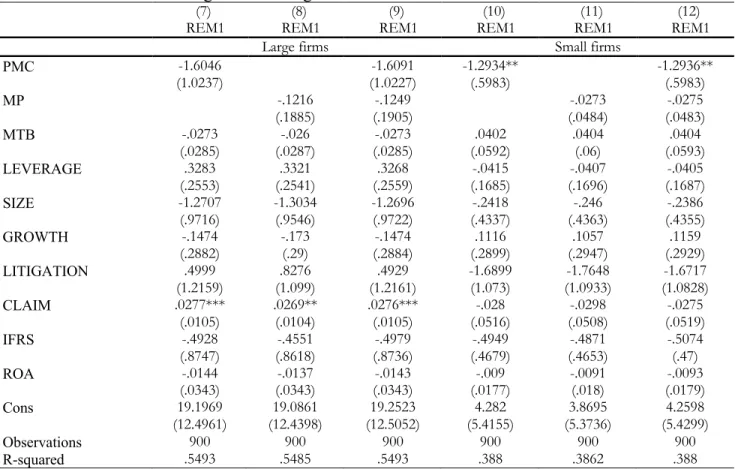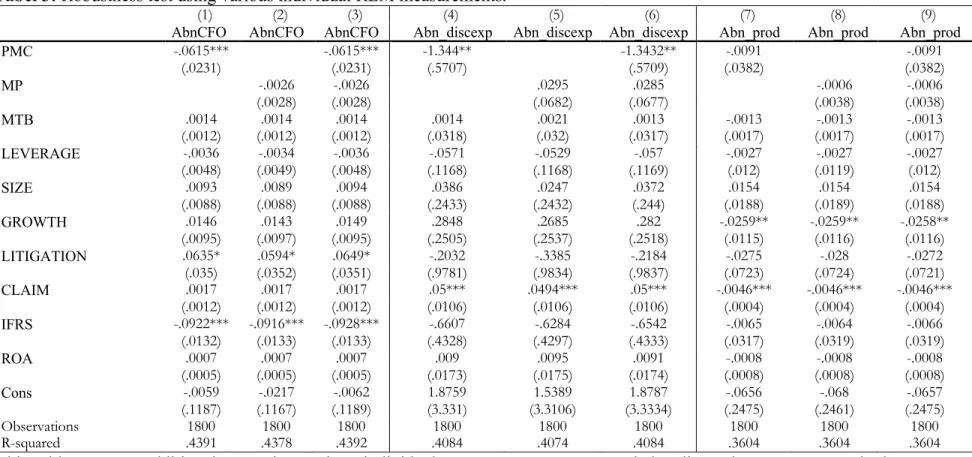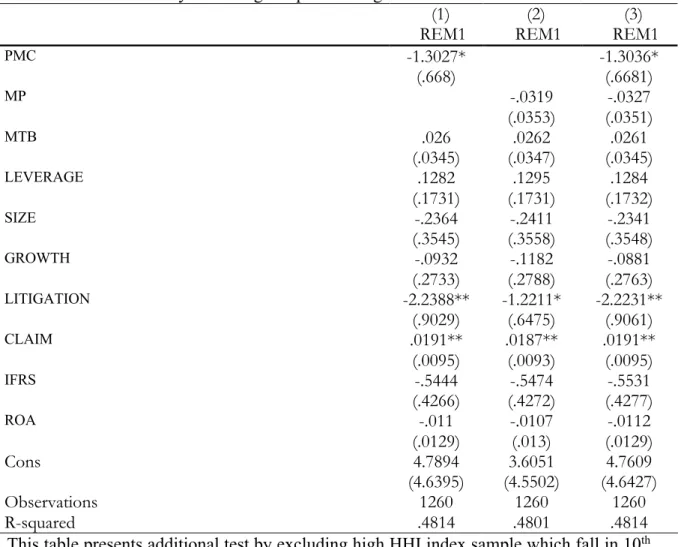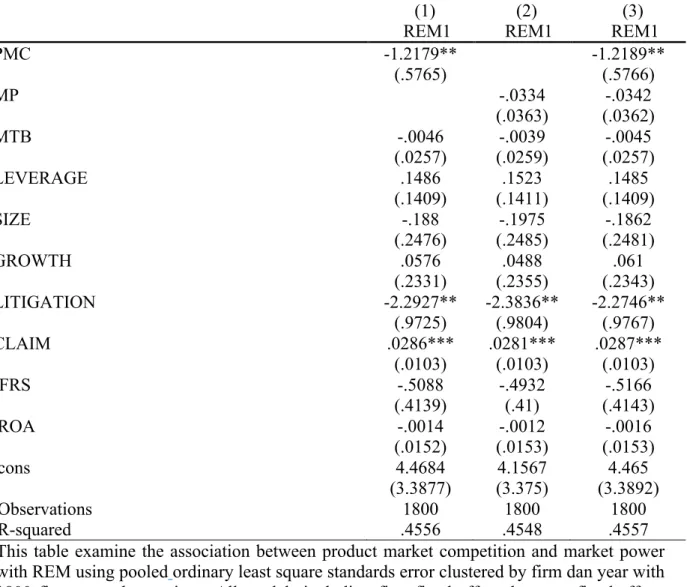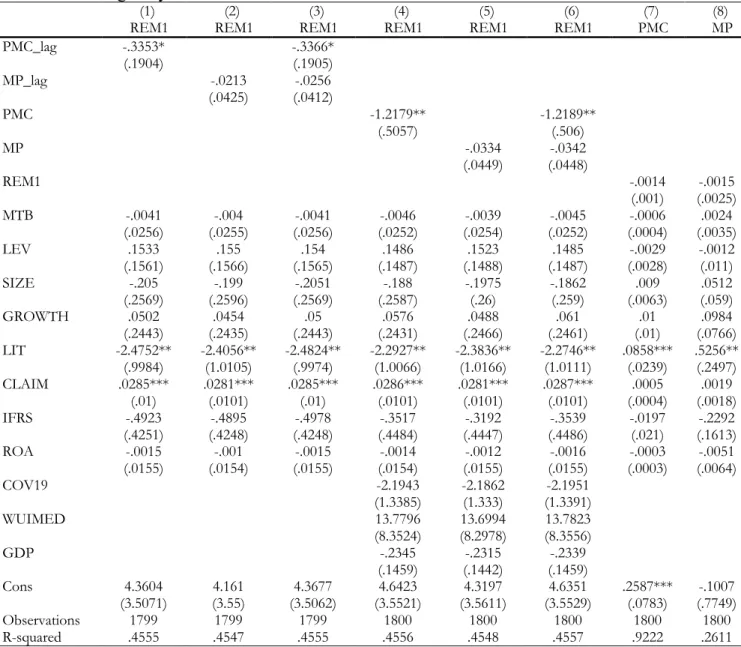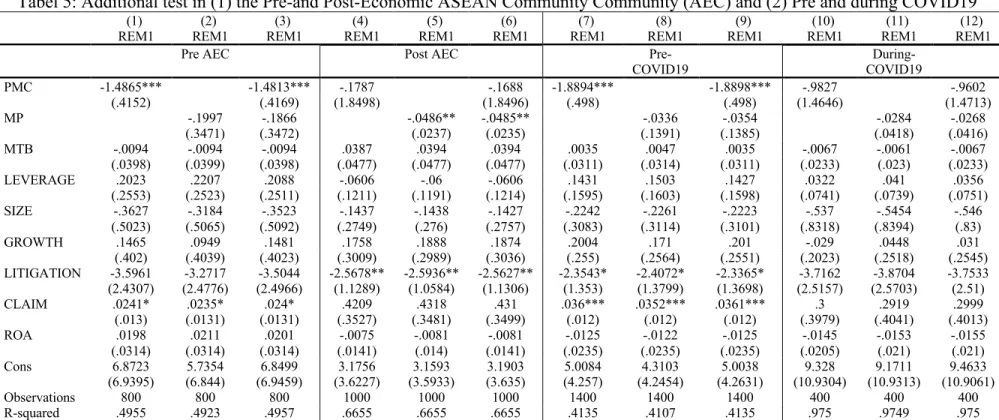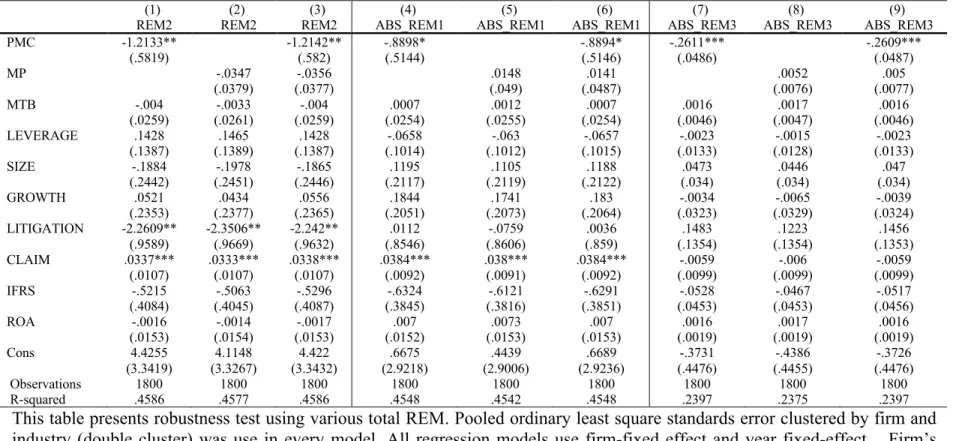Discipline versus the Complementary Role of Product Market Competition and Market Power: Evidence from Real Earnings Management in an Emerging Market. In addition to explaining the importance of this research at the beginning, it is necessary to emphasize the originality of the work in comparison with similar contributions. Manuscript title The Discipline vs Complement Role of Product Market Competition and Market Power: Evidence from Real Earnings Management in an Emerging Market.
The originality of the work compared to similar papers has been highlighted in the manuscript. Consequently, the motivation to engage in REM will be reduced in the presence of high product market competition. We wish to submit an original research article entitled "The Discipline Vs Complement Role of Product Market Competition and Market Power: Evidence from Real Earnings Management in an Emerging Market" for consideration by Cogent Business & Management Journal.
We further show that the disciplining role of product market competition in shaping REM is stronger in the post-ASEAN economic community (AEC) and pre-COVID-19 period, as well as in small and income-enhancing firms. Our findings are significant because the contradictory view of discipline role versus complementary role of product market competition and market power requires further investigation, particularly in emerging markets such as Indonesia, which offer a unique setting and receive less attention in the literature. We empirically study the role of product market competition and market power, discipline versus complementary role on real earnings management (REM) in Indonesia.
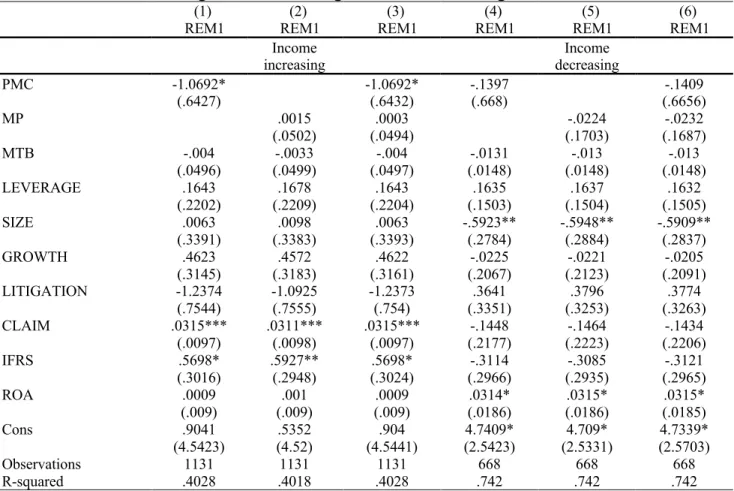
Introduction
In addition to product market competition, the relationship between market power and REM may support disciplinary or complementary views. This study investigates whether disciplinary views or complementary views will be claimed on the relationship between product market competition and market power in managerial behaviors to manipulate the profit target through manipulation of real activities in Indonesia. Our research makes several contributions to the literature on product market competition, market power and REM.
First, we contribute to the REM literature by showing how market competition can discipline managers who use REM. Second, the current study contributes to the product market competition and market power literature from an emerging market perspective. We aim to complete previous studies such as those by Chang, Liang, and Yu (2018) and Datta, Datta, and Sharma (2013) and analyze how product market competition and market power may affect REM considering the pandemic COVID-19 and the period before and after the AEC.
Third, we include data from the COVID-19 pandemic and the AEC, and as a result, we contribute to the emerging market literature by demonstrating that external shocks, particularly in Indonesia, have a substantial effect on the relationship between market competition and REM .
Related Literature and Hypotheses Development
Previous market power studies suggested that pricing power has a substantial effect on managerial incentives and decisions (Datta, Datta, and Sharma 2013; Majeed and Zhang 2016; Mitra and Cready 2012; Sun, Yuan, and Wang 2021). On the one hand, price power exacerbates the manager's commitment to misrepresenting accounting numbers through REM, implying that market power serves a complementary role in managerial incentives when REM is used. On the other hand, market power can also facilitate managerial incentives to manipulate real operating activities, which is considered as the force that can discipline managers and support the negative relationship between pricing power and REM.
Another possible explanation is that firms with high market power can meet the market expectation regarding the reported earnings and financial performance. However, firms with low market power will find it more difficult to meet the market expectation due to its volatile earnings and cash flow. Datta, Datta and Sharma (2013) conducted the first research on the relationship between market power and discretionary earnings manipulation.
In addition, companies with weak market power are more likely to manipulate earnings to meet market expectations for the company's stock, and a negative correlation occurs.
Research Design 1. Sample Selection
Their findings also implied that greater market power causes managers to limit the disclosure of private information to the market and decrease the amount of information a competitor obtains. Mitra and Cready (2012) discovered that although firms with greater market power engaged in less REM, these firms still used accrual-based EM, suggesting inconsistent evidence regarding the role of market power in EM. In recent years, Chang, Liang, and Yu (2019) found that higher market power tends to make managers engage in AEM, which does not support the view that market power can discipline managers from inflating their firm's earnings.
To summarize, whether market power serves as a substitute and can discipline managers, or as a complementary role and provides managerial incentives to engage in REM, the proceedings studies show a contradictory result. Furthermore, we deleted fixed years with insufficient data to calculate all variables we need in the regression model - finally, the above criteria selection yield in 1800 firm-year observation represented by 200 firms. N is the total number of firms in the industry; Sales, a firm's net sales; COGS, cost of goods sold; and SG&A, selling and general and administrative expenses.
Firms in a perfectly competitive market have an adjusted LI equal to 0, implying the absence of market power. REM activity includes abnormal cash flows and discretionary expenses, such as R&D, advertising expenses and SG&A. First, we estimated the following regressions using data on firms in the same industry classified by four-digit GSIC.
𝑃𝑟𝑜𝑑"9 refers to the sum of cost of goods sold (COGS) and inventory change during the year (Cohen and Zarowin 2010; Roychowdurry 2006). In addition, we calculated REM by dividing the three of abnormal cash flow, discretionary expenses, and cost of production (Cohen and Zarowin, 2010, Francis, Hasan, and Li 2016, Sohn 2016, Zang 2012) In this model, we regress REM on product market competition and various control variables (CVs).
We include firm size (SIZE) because larger firms have more political costs, as suggested by the political cost hypothesis in positive accounting theory, and are more likely to engage in EM. Following Cohen and Zarowin (2010) and Laksmana and Yang (2014), we control for the firm's litigation risk as the EM is subject to litigation ( Cohen and Zarowin, 2010 ).
Empirical Results
In the next section, we will examine the relationship between product market competition and market power with REM after controlling for other factors influencing REM (multivariate regression). We used equations (7) to (9) to test the relationship between product market competition and REM, and the results are presented in Table 3. Finally, to directly test the reverse causality (Sohn 2016), we return to product market competition on REM and market power on REM.
Compared to revenue-decreasing companies, the disciplining effect of competition on the product market and market power is likely to be evidenced in revenue-increasing companies. Therefore, we predicted that the coefficient of product market competition and market power would be more pronounced in income-increasing than income-declining subsamples. This result supports our prediction that the disciplining effect of product market competition and market power is more likely to be evident in revenue-increasing firms.
Geroski and Gugler (2004) provided evidence that product market competition can also negatively impact large firms. Which period will lead to a pronounced effect of product market competition on REM is an empirical question. This additional analysis supports the claim that the negative effect of product market competition on REM will be more pronounced in the pre-AEC period.
We predicted that the negative effect of product market competition on REM behavior would be more pronounced in the pre-COVID-19 period. First, in the pre-COVID-19 period, product market competition was considered an essential external monitoring mechanism needed to mitigate the REM behavior. Thus, we expected the role of product market competition to be stronger in the pre-COVID-19 period.
In contrast, in Column 12, the coefficient of product market competition in the pre-COVID-19 period is insignificant. These results support our prediction that the negative effect of market competition on REM is stronger in the pre-COVID-19 period.
Discussion and Conclusions
Also, the disciplinary role of market competition and market power should provide them with insightful experiences. Product market competition and earnings management: the role of managerial ability, Review of Accounting and Finance, Vol. Recent studies have shown that product market competition affects managers' behavior in terms of engagement in earnings management (EM).
Previous research on the relationship between product market competition or market power and earnings management has focused on AEM and data from developed markets (Biswas, Ranasinghe and Tan 2022; Hasan, Hossain and Gotti 2022; Marciukaityte and Park 2009; Markarian and Santalo 2010; Tinaikar and Xue 2009). We know relatively little about the disciplinary effects of product market competition and market power on real activity manipulations in developing economies such as Indonesia. Existing empirical studies provide evidence and explanations on the disciplinary mechanism of product market competition (Laksmana and Yang 2014; Shi, Sun and Zang, 2018).
They pointed out that competition in the product market motivates managers to act in the best interests of shareholders, such as reducing private control advantage. The current study investigates whether market competition and market power have a disciplinary effect on the behavior of managers involved in REM. The basic test indicated that competition in the product market could discourage managers from engaging in REM.
MP is the measure of market power using adjusted Lerner index, while PMC is product market competition measurement. MP is the measure of market power using the adjusted Lerner index, while PMC is product market competition measured by the HHI index. This table examines the relationship between product market competition and market power with REM using pooled ordinary least square standard error clustered by firm then year with 1800 firm-year observations.

